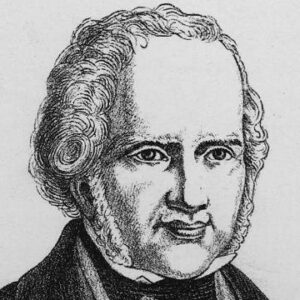The illustrious Rothschild banking dynasty was established by German Jew Mayer Amschel Rothschild. He founded a large company that included not just banking and finance but also other industries including real estate, mining, and winemaking. He is often referred to as the “Founding Father of International Finance.” He was ranked seventh on Forbes’ list of “The Twenty Most Influential Businessmen of All Time” published in 2005. The Rothschild family held the largest private fortune and wealth in the world in the latter part of the 19th century. In the current climate, the Rothschilds are among the richest private families. The Rothschild dynasty was founded in Frankfurt, a significant commercial hub in the 18th century with a large population of bankers and wholesale traders. In addition to owning the biggest banks in the world in the late 19th and early 20th centuries, Mayer’s descendants also got involved in the mining, oil, real estate, and winery industries. Numerous conspiracy theories have been made about the Rothschild family as a result of their connections to numerous political and military leaders as well as the fact that they closed significant business deals in a number of powerhouse countries. The family is widely thought to have strong ties to all world leaders, and they collaborate to dominate the economy through the dominance of the manufacturing, financial, and military industries.
Early Childhood & Life
On February 23, 1744, Mayer Amschel Rothschild was born in Frankfurt, Free Imperial City, Holy Roman Empire. He was one of the eight children raised by his parents, Amschel Moses and Schonche Rothschild.
His father had a trade and currency exchange firm and was a successful businessman. When Mayer was born, his father served as the Prince of Hesse’s personal coin supply.
Historically, the Rothschild family was from Europe. Their ancestry dates to the sixteenth century.
His Commercial Career
With the completion of an apprenticeship under Jacob Wolf Oppenheimer, who was in charge of the banking firm owned by Simon Wolf Oppenheimer in the city of Hannover in the year 1757, Mayer Rothschild entered the world of finance.
Mayer Rothschild benefited greatly from Jacob’s extensive understanding of the banking industry as the grandson of Simon Wolf. Additionally, Rothschild obtained top-notch instruction in currency exchange and international business. After completing his apprenticeship, Rothschild returned to Frankfurt in 1763 and started working for his brother’s company.
Mayer began trading in a variety of industries, most notably rare coins, which ultimately earned him the admiration and support of Crown Prince Wilhelm of Hesse. Mayer was given the title of “Court Factor,” and Prince Wilhelm already held his father in high regard.
As the business of the Rothschild family grew, Mayer also got involved in a number of other princely courts. When the French Revolution occurred when he was a young man, Rothschild was put in charge of managing payments to Great Britain as they attempted to enlist mercenaries.
The Rothschild family had even more success at the start of the 19th century when they started to expand their companies throughout Europe. The princely states were removed from power with Napoleon’s conquest of Hesse in 1806, but Mayer Rothschild was allowed to carry on with his banking ventures, and he started making significant investments in London.
Rothchild’s Individual Life
In August 1770, Mayer Amschel Rothschild wed Guttle Schnapper. She was Wolf Salomon Schnapper’s daughter. Five sons and five daughters were born into the marriage. He raised each of his boys to be the future owners of his company and taught them all the vital business acumen.
All of his daughters were married to Jews who held important or powerful jobs. He also gave each of his son’s instructions to duplicate Frankfurt’s success in five other cities around Europe. In the colonial era, these cities served as the financial and economic capitals of the globe. In London, Naples, France, Austria, and Poland, his sons founded banks and companies.
The Rothschild banking dynasty grew to be the wealthiest and most influential in all of Europe as the 19th century progressed. They had such a tight grip on the currency market that they could control the ebb and flow of wars and political conflicts across all of Europe.
In Frankfurt am Main, where he was born, on September 19, 1812, Mayer Rothschild passed away. His remains were interred in Frankfurt’s Judengasse, a historic Jewish cemetery that was situated near the city’s ghetto.
By extending the family business from Europe to other continents, his sons and grandkids continued his legacy. They had a considerable impact on the economy of America, England, Germany, Spain, France, Italy, and Austria at the end of the 19th century, when those countries were the top colonial powers in the world.
Estimated Net Worth
The Rothschild Family, a group of five boys and their father who established a banking empire in the 1800s, now has a $400 billion combined net worth. The Rothschilds, one of the richest families in history, have amassed considerable power, however, others claim that today they are less dominant than in past eras.


